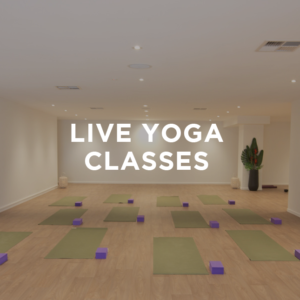When you hear the words, preventative care what do you think of? Getting the car serviced? Checkups at the dentist and vaccinations for your pet?
It’s true that we spend a lot of time, money and energy keeping the “things” in our life maintained to avoid problems or surprises in the future. We’ll take vitamins and supplements to help our bodies stay nourished, monthly gym or yoga memberships to help us stay supple and strong, and we make sure our partners or kids are doing the same. But how often is it that we take a step back, and check in with ourselves on the inside? The part of us that – whether we realise it or not – we spend all day working? Our mind.
A preventative care practice is one of the most important things we can do for wellbeing. It is how we ensure that we are taking care of our mental health.
So, how do we take care of our precious mind?
It all begins with mindfulness
The practice of mindfulness is the ability to separate ourselves from our thoughts, and to then observe those thoughts without judgement. It is the art of acknowledging that the thoughts are there, that they’re coming up for a reason and accept them. This is our opportunity to become aware and become a witness. By observing, or witnessing, your mind in action you can see what is worth listening. To reap the full benefits of a preventative care practice, it’s important to get this right.
Leaving Limiting Beliefs Behind
The more time you spend being a witness to your thoughts, you will find it easier to identify limiting beliefs. These are the thoughts or ideas that you are holding against yourself. Once we become aware of these thoughts as they arise (often non-stop), we can start to identify which ones are beneficial and which need to be re-evaluated.
If you were to take a step back, and become the witness to your thoughts – without judgement – what kind of dialogue would you be having?
Ask yourself these questions:
- Am I happy with what I am hearing?
- Would I speak to friend or a loved one this way?
- What limiting beliefs do I have about myself?
- Do I believe these limiting beliefs, and if so why? What actually makes them true?
Limiting beliefs can be tricky. Because they often feel true in the moment. You will know how convincing it is when you hear phrases pop up , like:
“Don’t bother going to the gym today, I’ll only eat junk later on”
“I don’t have time”
“I’m always late”
“Cancel the massage, work is too busy”
We become so familiar with these thoughts that they stick and ultimately become how we see ourselves. Before long, it becomes what we identify as. You may have started listening to these thoughts after being faced with challenges, or you may have been listening to these thoughts since childhood.
If your inner dialogue contains limiting beliefs you no longer want to hear, you need to ask yourself what changes you can make. If you’re feeling annoyed at your job or your partner – there is a good chance you’re annoyed at yourself for something! This is where you step back and become the witness. Become constantly mindful of what you are thinking. We can’t make the change if we don’t know what it is we need to change.
Change your dialogue
Look for ways to change your inner dialogue. Instead of saying “I’m tired”, ask yourself why you’re tired. What can you do to feel less tired? Your inner voice might then change to “I need to restore myself today, I need some healing and solitude”.
As you put these words into practice and give yourself time to rest – you may just notice that you are no longer feeling as tired. And before long, you don’t identify with being tired.
Becoming the witness to your thoughts doesn’t have to be a time consuming chore. But like any muscle, the more you use it the stronger it gets, and the easier you can step into the role of the observer during your day.
Take some time out to observe your thoughts. Leave the judgement behind and be a witness to your internal dialogue. Are there patterns you can shift so you don’t end up with a hefty emotional bill in the years to come?
Prevention is the key!






